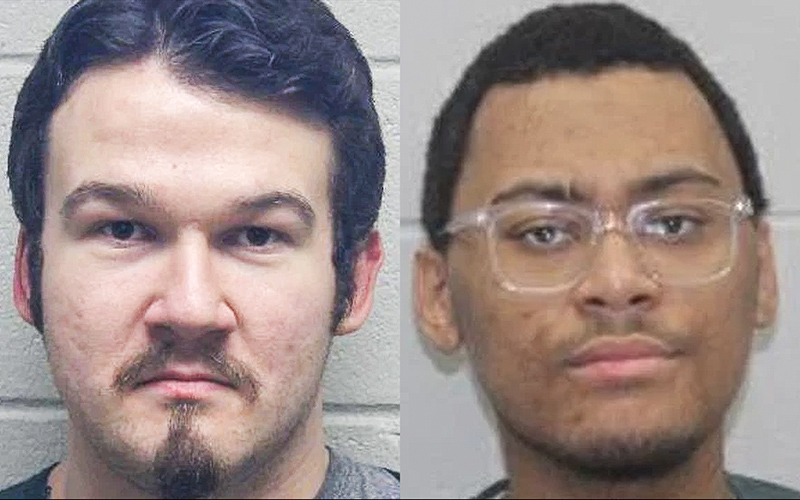N.J. lawsuit alleges conversion therapy violates consumer fraud laws
Former clients of JONAH claim organization promised to succesfully change their sexual orientation

If a landmark lawsuit being heard this week in New Jersey is successful, it may set in motion a chain of events that would essentially upend the modern conversion therapy industry.
The case of Michael Ferguson, et al., v. JONAH is the first of its kind. It seeks to attack the practice of conversion therapy using existing consumer fraud laws, while also solidifying in case law that being gay, lesbian, bisexual or transgender is not a disorder that can be cured. Specifically, the plaintiffs, which include four former clients who underwent conversion therapy and two of their mothers, claim that Jews Offering New Alternatives to Homosexuality (JONAH) engaged in “deceptive practices” prohibited under New Jersey’s consumer fraud law when they “represented to Plaintiffs that their services were effective in changing a person’s sexual orientation from gay to straight.”
According to the complaint, which was brought by the Southern Poverty Law Center (SPLC) on behalf of the six plaintiffs, JONAH’s clients were made to engage in various forms of conversion therapy that have been endorsed by leading figures in the conversion therapy movement. Some of the rituals that they engaged in included beating an effigy of one’s mother with a tennis racket, being subjected to taunts of “faggots” and “homos” in mock locker room and gym class scenarios, being made to cuddle with or intimately hold other people of the same sex, including counselors, going to the gym or bath houses to be nude around father figures, and removing clothing to get naked during both individual and group therapy sessions. The complaint even alleges that one of the plaintiffs was instructed to hold his penis in front of one of the counselors at JONAH.
Specifically, the plaintiffs claim that the organization misrepresented itself by promising to be able to change the young clients from gay to straight, in exchange for treatments and group therapy sessions, including weekend retreats, which carried a price tag in excess of $10,000 a year. They also claim that, as a result, JONAH caused its former clients to suffer “depression and emotional harm” when undergoing the treatments and being unable to successfully change their sexual orientation.
“This case is about exposing the lie that LGBT people are mentally ill and that they need to be cured,” David Dinelli, deputy legal director for SPLC, said in a statement as the plaintiffs prepared for trial, which began on Wednesday. “Groups like JONAH should not be allowed to use bogus therapy, based on junk science to scam LGBT people and their families out of thousands of dollars.”
Earlier this year, New Jersey Superior Court Judge Peter Bariso, Jr. excluded several key defense witnesses, many of whom are prominent proponents of conversion therapy. Bariso also ruled in a pretrial motion that the central idea behind conversion therapy — that homosexuality is a mental disorder and can be cured — is a discredited notion. Bariso found that it “is a misrepresentation in violation of [New Jersey’s Consumer Fraud Act] in advertising or selling conversion therapy services, to describe homosexuality, not as being a normal variation of human sexuality, but as being a mental illness, disease, disorder, or equivalent thereof.” However, Bariso did not rule out that a jury might be able to find JONAH not guilty if it is believed that the organization simply represented homosexuality as “disordered” according to their religious beliefs, which would be protected under the First Amendment.
A decision in favor of the plaintiffs and against Jonah could have far-reaching effects. According to Christopher Stoll, senior staff attorney at the National Center for Lesbian Rights, which has been pushing for states to ban the practice of conversion therapy on minors, either Bariso’s earlier ruling or a victory by the plaintiffs in the ongoing lawsuit would likely pave the way for similar lawsuits under other states’ consumer fraud statutes.
“Almost every state has some type of consumer fraud law, and a favorable decision in the New Jersey case would certainly open the door to claims being brought against those who advertise those kinds of services,” Stoll said.
It is also possible that a decision finding conversion therapy violated consumer fraud laws might have an effect on whether states prohibit the practice for minors, but that they are not necessarily inextricably linked together, according to Stoll.
“I think it’s appropriate to continue the push on both fronts,” he added. “We’ve now seen Oregon join California and New Jersey in prohibiting this practice for minors at least as practiced by licensed therapists. The interesting thing about the SPLC case and the consumer fraud approach is those kinds of lawsuits can be brought to bear against all practitioners of these discredited therapies, including those who are not licensed therapists.”
Stoll also said that the SPLC/consumer fraud approach could build momentum for a bill introduced by U.S. Rep. Ted Lieu (D-Calif.), which would allow the Federal Trade Commission to classify for-profit conversion therapy — and its promises to change people’s sexual orientation or gender identity — as “fraud.” That would enable the FTC to pursue further action against practitioners if it so chooses. In practice, and particularly if strictly enforced, Lieu’s bill could essentially drive the bulk of practitioners within the for-profit conversion therapy industry out of business by making them vulnerable to future lawsuits.
While Stoll acknowledged that the FTC’s enforcement of the Lieu bill might be influenced based on who becomes the next president, he also expressed hope that the issue would not become partisan.
“Certainly, who controls the White House does have an effect on all sorts of laws,” Stoll said. “But I would hope that a president of either party would realize, just like Chris Christie did in New Jersey, that there is no scientific support for these types of practices, and all they do is harm some of our most vulnerable people, including youth.”
Support Metro Weekly’s Journalism
These are challenging times for news organizations. And yet it’s crucial we stay active and provide vital resources and information to both our local readers and the world. So won’t you please take a moment and consider supporting Metro Weekly with a membership? For as little as $5 a month, you can help ensure Metro Weekly magazine and MetroWeekly.com remain free, viable resources as we provide the best, most diverse, culturally-resonant LGBTQ coverage in both the D.C. region and around the world. Memberships come with exclusive perks and discounts, your own personal digital delivery of each week’s magazine (and an archive), access to our Member's Lounge when it launches this fall, and exclusive members-only items like Metro Weekly Membership Mugs and Tote Bags! Check out all our membership levels here and please join us today!



























You must be logged in to post a comment.